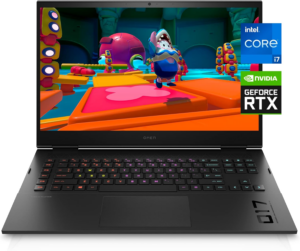A VPN is software that enables you to hide your online traffic and location. It works seamlessly and anonymously. You can also use it for various other things, such as geographical blocks to access different streaming services across the globe. VPNs offer amazing streaming speeds, and some speed tests say the efficiency offered by the VPNs is incomparable.
What can VPNs do for you?
Data encryption is sent through the internet.
All your internet traffic is encrypted when you connect to a VPN server. It means that nobody knows what you’re doing online, and nobody can see it. That means that your internet service provider can’t throttle your speeds when you use a certain type of media or application that is speed-intensive.
Protect your sensitive information from hackers by using a VPN. It stops them from accessing your websites and gaining the power to do anything with your information. It is especially important if you use public Wi-Fi. It’s easy for hackers to monitor your connection and steal your data.
Masking your IP address
Websites and services determine your IP address by using it to determine your location. When connected to a VPN server, your IP address is only used to authenticate websites and services.
Because people can no longer see where you are located, you can access any content without being restricted by the geographical blocks and censorship.
Some VPNs block malicious sites, trackers, and advertisements
Websites can also secretly install malware and trackers on your device. VPNs have a built-in protection system to prevent any infections by blocking any malicious sites before causing any damage. Some VPN apps also block advertisements and pop-ups. Hence, it prevents your device from being infected by malware.
How VPNs work
A VPN will direct all your online traffic via one of its servers, encrypted like you can connect to the US server while you are in the UK. The UK to US VPN is a secure way to transfer traffic from the UK to the US. It encrypts all your traffic and prevents your ISP from seeing it.
From your location, your server will forward your traffic to the websites you visit, and the server acts as its origin rather than your device. It then means that your IP address is different from that of your server. The best VPNs use regularly updated servers to prevent third parties from accessing any form of leak into the system, hence offering undetectable and private connections at all times.
How VPNs help Indians stream
Your IP address is the key to accessing content from streaming services like Netflix and Hulu. They use it to find out where you live and control the content that you stream. You can trick streaming services into believing that you are in another country hence accessing content that is locked in your country.
Legality of VPNs
Yes, VPNs are legal in most countries, including India, but some countries still restrict VPNs within their boundaries.
Countries like Iraq and China prevent the use of non-governmental VPN providers. The approved service providers must have met all the regulations, including censorship and anti-privacy protocols. Non-compliant VPN providers usually are blocked their preventing their users from accessing them while in the countries.
How VPNs guarantee privacy
A good VPN should have strong privacy policies and good security measures; hence users are assured of protection from the leakage of their private information. Also, it’s important to know that DNS and IP leaks are not as common as people think. Having a good understanding of these two components is key to protecting yourself.
There are a variety of privacy protection features that a reliable VPN should have like;
No-log policies
These policies prevent ISPs from storing and sharing your browsing history with government agencies. The anti-logging policies should be strong enough to prevent hackers from accessing your data from the used VPN servers.
DNS leak protection
When you browse a website, your computer sends an IP address request to a DNS server. The server knows the IP address of the website you visited, making it easy for the internet service provider to reveal all your browsing activities.
When you connect to a VPN, all your DNS requests are routed to the servers of your ISP. However, sometimes, this can happen without you knowing; hence DNS protection ensures protection against any leaks.
IPv6 leak protection
Even though IPv6 is now officially available, most VPNs still use the old IPv4 addresses. It poses a serious security risk if the systems are not updated properly.
If your internet service provider supports IPv6, your traffic will be routed through your ISP instead of your VPN. It would reveal you are true location to the website.
You can still access websites that support IPv6, but these will no longer be available through VPNs but the IPv4 address.
WebRTC leak protection
The common browsers like opera, Firefox chrome, internet explorer, and safari can communicate with each other using WebRTC, but to enable the connectivity, they have to know the real IP address of the other. The methodology used to collect the information is superior to that used by third parties who use advanced techniques. They can use WebRTC to find your actual IP address and location. Trustworthy VPNs automatically disable WEbRTC, shielding your IP address hence preventing any information leakage.
Are there any adverse effects of using VPNs?
The benefits accrued from the use of VPNs outweigh the cons. Some of the drawbacks are;
The connection speed will have a small hit.
It takes a little bit of time for your data to travel to the VPN servers. It also encrypts and decrypts your traffic; hence the connection speed may reduce at a very low rate.
Untrusted VPNs can access your browsing history.
If your provider is less reputable, there are possibilities of being forced to share your browsing history with third parties.
A good VPN will have a strict no-logs policy and a RAM-based server that automatically deletes your records each time they are rebooted.
In conclusion, A VPN is a tool that enables you to secure your online privacy. It can also help you avoid getting blocked by geographical blocks and censorship. A VPN is a great choice for people who are looking to protect themselves from online threats. It works seamlessly and is very affordable.
















